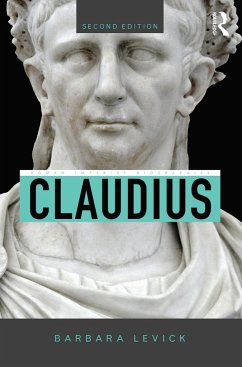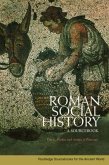Claudius became emperor after the assassination of Caligula, and was deified by his successor Nero in AD 54. Opinions of him have varied greatly over succeeding centuries, but he has mostly been caricatured as a reluctant emperor, hampered by a speech impediment, who preferred reading to ruling. Barbara Levick's authoritative study reassesses the reign of Claudius, examining his political objectives and activities within the constitutional, political, social and economic development of Rome. Out of Levick's critical scrutiny of the literary, archaeological and epigraphic sources emerges a different Claudius - an intelligent politician, ruthlessly determined to secure his position as ruler. Now updated to take account of recent scholarship, Claudius remains essential reading for students and historians of the early Roman Empire.
Hinweis: Dieser Artikel kann nur an eine deutsche Lieferadresse ausgeliefert werden.
Hinweis: Dieser Artikel kann nur an eine deutsche Lieferadresse ausgeliefert werden.
"Levick's work on Claudius continues to make a valuable contribution to the field and offers not just a strong foundation of information for those interested in Claudius, but also worthwhile material for anyone studying the Julio-Claudians or the Roman world of the first century CE." - Bryn Mawr Classical Review
"Levick's work on Claudius continues to make a valuable contribution to the field and offers not just a strong foundation of information for those interested in Claudius, but also worthwhile material for anyone studying the Julio-Claudians or the Roman world of the first century CE." - Bryn Mawr Classical Review








